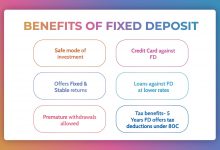Stick to Your Budget! Stop Impulse Spending When Building a Home

Impulse spending is the enemy of anyone who wants to build lasting wealth. It is easy to feel trapped when you’re trying to save for a future home or start investing in your future. Fortunately, there are ways to keep your spending in check when buying or building a new home.
If you’re anxious to move into your new abode and don’t want to wait any longer, right now may not be the right time. Here are five tips that can help you curb your impulsive spending when buying or building a new home.
1. Conduct a financial feasibility study
Please don’t assume that you’re ready to buy a home because you have a substantial down payment and can afford it. Instead, take time to do a financial feasibility study to have a solid idea of how much money you’ll need to buy the home you want. This will help you understand how much time and money you’ll have to put toward your new home. You may be surprised to find out that buying a home may not be right for you, even one that you can afford.
2. Make a realistic budget and stick to it
Before looking at homes and making offers, create a budget and stick to it. This will make the process much easier for you and give you a better idea of how much you’ll need to accumulate to buy your new home. Additionally, if you’re planning on getting a jumbo mortgage, making a budget and sticking to it will be easier if you get approved for the mortgage. Before applying for the mortgage, study the pros and cons of jumbo mortgage decisions.
3. Know what you’re looking for in a new home
Before looking at homes, figure out exactly what you’re looking for in a new home. This will help you narrow down the type of homes you visit and make a better decision when deciding on a new home. Make a list of all the features you want in your new home, from the size to the layout. After making a list, visit homes that have some of the features on your list and make sure you’re happy with them. This will save you time and money down the road.
4. Don’t wait until you find your perfect home before saving
If you wait until you find the perfect home before saving for one, you’ll never get started. Instead, start looking for homes as soon as possible and list all the homes you want to look at. This will help you prioritize which homes you visit and add to your list. When you find a home you like, start saving for it. You’ll want to put as much money toward buying the home as you can to be ready when the time comes.
5. Ask the builders about their financing options before you purchase
If you’re looking to buy or build a new home, you may be wondering what types of financing options are available to you. Before you start looking into financing options on your own, ask the builders about their financing options. This will help you get a better idea of the costs and what you need to do to afford the home you want. While it may be difficult to keep your impulsive spending in check if you’re feeling the pressure to buy a home right away, it will be worth it in the long run.
Tips to Help You Stay on Budget
- Plan ahead
The best way to stop impulse spending is to set expectations. Start looking at your income and find out how much you’ll have at the end of the month. If you still have a little bit leftover, use it to save.
2. Set clear goals
Before you begin to budget, set clear financial and personal goals. This will help you determine how much you should be saving each month and your personal preferences.
3. Assign a daily budget
Before you begin to budget, assign a daily budget to yourself. This daily budget should be small enough to make you feel like you’ve got it under control.
4. Be honest with yourself
Impulse spending happens when you’re feeling bored, frustrated, or just looking to relieve some stress. If you notice that you’re feeling one of these emotions, try to identify the cause.
5. Avoid the trigger
The best way to stop impulse spending is to avoid the trigger. If you feel tense and in a stressful situation, try to identify the cause. Once you’ve identified the cause, try to address it. One way to avoid the trigger is to schedule your spending.



